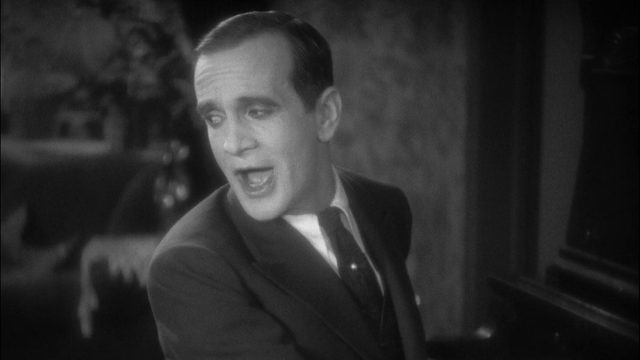As of Sunday, all of the silent era is in the public domain in the United States. Imagine that for a minute. The situation with film has long been complicated; I am not a lawyer, much less a copyright lawyer, so understand that I’m basing my article off a very loose understanding. There were a lot of shenanigans with film in the twentieth century, and a lot of things are public domain already that ordinarily wouldn’t be for decades. However, regardless of things like the disappearing-reappearing copyright of films such as It’s a Wonderful Life, if it’s a film made without sound as more than a curiosity, it’s public domain in the United States now. As is, of course, The Jazz Singer and any other sound films of 1927.
We are firmly into the Jazz Age with this year’s options, and not just because of the list of songs now available. Though you can be puttin’ on the Ritz in your blue heaven. We can all scream for ice cream and know that ‘s wonderful that the best things in life are free. We can beat our feet in the Mississippi mud, the mud of Ol’ Man River. Duke Ellington’s “Black and Tan Fantasy” is available, as is a piano concerto by Aaron Copland. We’re solidly in the career of Al Sherman, father of Richard and Robert. Individual recordings’ copyright depends on when they were actually recorded, of course, but you can record your own version of “Side by Side” without owing the estate of Harry Woods.
If perhaps you aren’t terribly interested in the year’s best-selling novel, Elmer Gantry, well, Sinclair Lewis isn’t for everyone. Nor is Upton Sinclair’s Oil! That’s okay. The last of the Sherlock Holmes is officially public domain in the US now. Or, if you’re me, you’re more interested in Unnatural Death, by Dorothy L. Sayers. Or I suppose you could like The Big Four, by Agatha Christie. The Outlaw of Torn, the only historical novel Edgar Rice Burroughs published during his lifetime, is now in the public domain, though I suspect the John Carter debacle will prevent any adaptation of that. The last Allan Quatermain novel is public domain now, too.
I’m not sure this year gives the internet an obvious Muppet adaptation to speculate over. Death Comes For the Archbishop and To the Lighthouse seem unlikely candidates. Possibly some of the poems in Now We Are Six, but the closest I think they’ve ever come to that was a bit on the Twiggy episode. The Gnome King of Oz is one of the post-Baum ones and less worth adapting. I suppose, however, since the first Hardy Boys is public domain now, the characters are, and you could do Kermit and Fozzie as the Hardy Boys?
In nonfiction, there’s Nan Britton’s autobiography, The President’s Daughter, which revealed her affair with Warren G. Harding. The Royal Road to Romance is Richard Halliburton’s book of world travel. Gandhi wrote his autobiography. Bertrand Russell wrote An Outline of Philosophy. E. M. Forster published a book based on a series of lectures he’d given called Aspects of the Novel. Certainly there are enough books to keep you occupied for a while.
If 1927’s most notable work is in film, well, there’s nothing wrong with that. Metropolis—imagine the Muppet version of that—is itself pretty noteworthy. The lost London After Midnight may yet be discovered. Chicago, the first movie telling of the story of Roxie Hart. It, with Clara Bow, and The Kid Brother, with Harold Lloyd. The Red Mill, directed by Roscoe Arbuckle and starring Marion Davies. The last of Walt Disney’s “Alice” comedies and the first of the Oswald, the Lucky Rabbit. The first official pairing of Stan Laurel and Oliver Hardy. “The Battle of the Century,” which exists only in a fragmentary form, and its record-holding pie fight. The first films eligible for Academy Awards were made in 1927.
Alas, this year is the first for the next twenty that there will be no Public Domain Day in Canada. In order to comply with other countries’ copyright regulations, they’ve extended their copyright term by twenty years. This is a terrible idea and it seems that everyone knows it—it’s worth noting that Disney hasn’t been trying to get the term in the US extended despite next year’s Great Mickey Mouse Opening with the release of “Steamboat Willie” into the public domain. Studies show it doesn’t increase creativity. An enormous number of works aren’t profitable by the time public domain rolls around; many are “orphan works,” where the rights holder can’t be found. Once works enter the public domain, they become accessible; this has been far too late for much of silent film.
Help support my creativity by contributing to my Patreon or Ko-fi!

